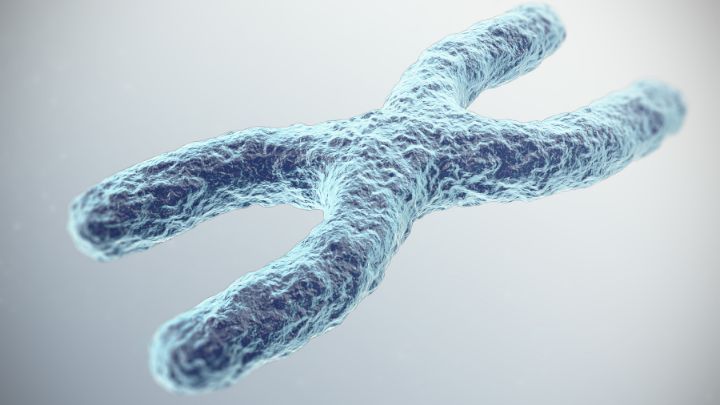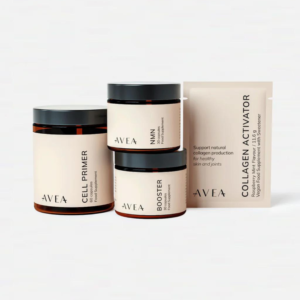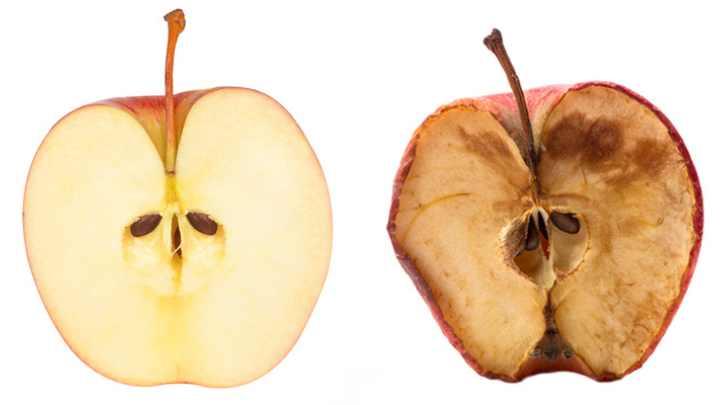Imagine if the secret to your health and longevity was hidden at the very tips of your DNA?
Telomeres, the protective caps at the ends of your chromosomes, are crucial to your cellular health. When these telomeres shorten, it’s a clear sign of ageing and can lead to serious age-related diseases.
It’s like watching your biological clock tick faster and faster, bringing you closer to conditions like heart disease, diabetes, and even cancer.
But before you panic, here’s the good news: you have the power to boost your telomere length.
Recent research reveals that whilst telomere length shortening is a significant biomarker of ageing, it’s not the whole story.
Factors like immune health and epigenetic changes play vital roles too. Even better, lifestyle choices can actively improve your telomere health, slowing down or even reversing some of the ageing processes.
Read this Avea article to discover how you can protect and even lengthen your telomeres, paving the way for better health and vitality.
In this article
FREE longevity guide

- Master the science of rejuvenation.
- Apply proven tips to turn back the clock.
- Transform your health with top longevity specialists.
What is a biomarker of ageing?
According to the American Federation for Aging Research, a true biomarker of ageing should
- predict life expectancy better than chronological age
- monitor ageing mechanisms without being disease-specific
- allow repeated testing without harm
- be testable in both lab animals and humans
Telomere length meets some of these criteria, being minimally invasive and testable in various species. However, its ability to predict life expectancy and monitor ageing mechanisms is debated.
Peripheral blood leukocyte telomere length is often used in studies, but results are inconsistent due to measurement methods and population differences.
Despite these issues, telomere length remains widely used in ageing research and personalised medicine, providing valuable insights into the complex processes of ageing and disease.
Before we dive any further, it’s crucial to know that whilst telomere length is considered as one of the 12 hallmarks of ageing, it’s not the definitive factor.
So don’t worry too much. There’s a lot you can do to influence your telomere length and improve your health.
Keep reading to discover how you can protect your telomeres.
What are telomeres?
Telomeres are like the protective caps at the ends of shoelaces, but for your chromosomes. These caps keep your chromosomes from sticking to each other and getting damaged.

Telomeres are made up of repeating DNA sequences and are protected by a group of proteins called Shelterin.
This complex helps maintain the structure of telomeres, forming loops that tuck in the loose ends of DNA to keep everything stable.
Telomeres are also involved in producing a special type of RNA called TERRA, which helps regulate how telomeres function and keeps them in good shape.
Every time a cell divides, its telomeres get a little shorter because our cells can’t quite copy the very end of the DNA strand. This shortening is a natural part of ageing and can be accelerated by things like oxidative stress.
When telomeres become too short, cells stop dividing and become old, which contributes to ageing.
Some cells can use an enzyme called telomerase to rebuild their telomeres, but this enzyme is usually only active in certain cells, like stem cells and some immune cells.
In most adult cells, telomerase is turned off, leading to gradual telomere shortening as we age. Whilst activating telomerase could potentially help fight ageing, it also poses a risk because it’s linked to cancer, where cells grow uncontrollably.
This makes finding a balance in telomerase activity a challenge for developing anti-ageing therapies.
How do telomeres shorten?
During cell division, chromosomes are copied to ensure each new daughter cell receives a complete set of genetic material.
Telomeres act as buffers, ensuring that the crucial genetic information on the chromosomes is fully copied and protected.

However, the very end of the chromosome, the telomere, cannot be fully copied and gets slightly shorter each time the cell divides. Plus, telomeres can also lose segments due to damage.
As cells continue to divide, the telomeres gradually shorten. Over time, this shortening reduces the number of DNA repeats in the telomeres, ultimately leading to critically short telomeres that can trigger cellular ageing or senescence.
How do your genes affect your telomere length?
Telomere length, and how quickly your telomeres shorten as you age, are influenced by your genes.
Studies of twins have shown that telomere length is highly heritable, with specific genetic loci linked to telomere length.
For example, a study found that the heritability of leukocyte telomere length at baseline was about 64%, whilst the heritability of the age-related telomere length shortening rate was lower, but still significant at 28% [1].
Mutations in certain genes that cause short telomere lengths can lead to diseases like pulmonary fibrosis and dyskeratosis congenita, part of a group known as “telomere syndromes.”
Research using Mendelian Randomization, a method to assess causality in observational studies, indicates that genetically long telomere lengths are associated with higher risks of several cancers, whilst short TLs are linked to age-related diseases like cardiovascular disorders and Alzheimer’s disease [2].
Interestingly, short genetically predicted telomere length have also been connected to accelerated facial ageing in studies involving the UK Biobank data.
The heritability of telomere length can come from variations in genes that affect telomere maintenance and the direct inheritance of telomere length from parental germ cells.
Evidence shows that telomere length in sperm increases with the father’s age, meaning children of older fathers tend to inherit longer telomeres.
Conversely, higher maternal age at conception is associated with shorter telomeres in offspring. This inheritance persists despite telomere reprogramming during embryonic development.
But, even if you didn’t hit the genetic jackpot, there’s plenty you can do to protect and even lengthen your telomeres.
Age backwards by 24 years like Dave Pascoe

- Learn the science that helped Dave enter his 60s with a biological age of less than 40.
- Apply proven longevity strategies to transform your own health.
- Implement expert tips for lasting youthfulness.
How does your environment affect your telomere length?
Environmental and lifestyle factors also significantly influence telomere length.
Early life experiences such as
- adverse events in the womb
- low socioeconomic status
- childhood neglect,
can impact telomere length, affecting health and longevity not just in those directly exposed but also in their descendants.
Other environmental factors also play a significant role in telomere dynamics, throughout one’s life, are
- prenatal stress
- early life adversity
- infections
- stress
- diet
- physical activity
- smoking
- alcohol consumption
Are telomeres responsible for ageing?
Telomere length is inversely correlated with chronological age, since it tends to shorten with age. However, studies show that this relationship isn’t linear and changes at different life stages.
After fertilisation, telomeres initially shorten, then lengthen during the blastocyst stage due to increased telomerase activity. Telomere length dynamics during pregnancy are less clear, with conflicting studies showing both increases and decreases in telomere length and telomerase activity at various gestational stages.
After birth, telomeres shorten rapidly in the first two years of life during rapid growth, then continue to shorten more slowly throughout life.
Interestingly, the telomere length people have at birth or in early childhood often sets the stage for their telomere length throughout life, meaning those with longer or shorter telomeres as children tend to maintain these lengths as adults.
Newborns inherit telomere lengths from their parents, influenced by both maternal and paternal factors.
For example, children of older fathers generally have longer telomeres, while those born to older mothers may have shorter telomeres.
Studies have shown that centenarians, or people who live to be 100 or older, often have better telomere maintenance and longer telomeres compared to their shorter-lived peers.
This may be due to preserved telomerase activity in certain cell types, helping to maintain telomere length.
But, the idea that there is a natural limit to human lifespan based on telomere length remains a topic of debate.
Telomere shortening and diseases
Telomere length is thought to play a crucial role in how our body ages and develops diseases.
As mentioned above, researchers suggest that our ageing trajectory might be “programmed” early in development.
For example, low birth weight due to intrauterine growth restriction is linked to higher risks of metabolic disorders in adulthood, whilst high birth weight might predict a higher risk of cancer.
Telomere biology is believed to mediate these effects. The “fetal programming of telomere biology” hypothesis posits that both initial telomere length and the rate of telomere shortening are highly influenced by early-life conditions.
Stress during prenatal and early postnatal periods can impact telomeres, potentially accelerating ageing and promoting disease later in life.
Short telomere lengths in early life may lead to poor health in adulthood, whilst longer telomere lengths might increase the risk of proliferative disorders like cancer.
Research has shown that short telomere lengths are associated with higher risks of chronic conditions like coronary heart disease, atherosclerosis, and type 2 diabetes. Similar associations have been found with hypertension and various aspects of metabolic syndrome.
However, findings on telomere length and neurodegenerative diseases like Alzheimer’s and Parkinson’s are mixed.
Some studies suggest shorter telomere lengths are linked to Alzheimer’s, whilst others find no association with Parkinson’s.
The connection between telomere length and cancer is also complex; whilst longer telomeres might imply higher cancer risks due to increased cell proliferation, cancer cells often have shorter telomeres than normal cells.
Despite these associations, the exact role of telomere shortening in ageing and disease is still not fully understood, and inconsistencies in findings highlight the need for standardised measurement methods.
How does telomere length impact lifespan?
Short telomeres are linked to higher morbidity and all-cause mortality. Studies show telomere length predicts survival better than chronological age.
In the Swedish Twin Registry, those with the shortest telomeres had a 44% higher mortality risk [3].
A meta-analysis involving 121,749 participants found those with the shortest telomere length had a 26% higher mortality risk [4].
Similarly, other studies reported higher hazard ratios for mortality in those with shorter telomere length.
However, findings are inconsistent, with some studies showing no significant link between telomere length and mortality.
More longitudinal research is needed to clarify telomere length’s role in predicting mortality and healthy ageing.
How to lengthen telomere length?
Now that you understand what telomeres are, their role in most of your cells, and their importance in ageing, here are some easy tips to positively impact your telomere length.
Recent studies show that better lifestyle choices can significantly maintain and even lengthen your telomeres.
1. Reduce daily stress
Stress is a well-known culprit behind various health issues, from depression and anxiety to heart disease and diabetes. Chronic stress also shortens telomeres [5].
Research shows that the longer and more intense your stress, the shorter your telomeres get. Managing and reducing stress can boost your overall health and potentially extend your lifespan.
Everyone handles stress differently, so find what works for you. Yoga, Pilates, and meditation are great ways to relax and protect telomere length.
For chronic stress, support from friends, family, or therapists can be crucial, along with lifestyle changes like more exercise.
Learn how to master your stress levels with Dr. Aditi Nerurkar’s expert guidance.
2. Exercise more often
Needless to say, how exercise is essential for a healthy body and long life. But here’s more– it’s also key to preserving telomere length.
A study in the European Heart Journal found that after six months, adults who engaged in aerobic endurance and high interval training were better protected from telomere shortening [6].
Regular exercise, especially endurance and high-intensity aerobic activities, has shown positive effects on telomeres.
Experts are still studying the benefits of resistance training and power-lifting, but some findings are promising. Learn how to exercise for longevity from top experts within the field.
3. Eat the rainbow
Your diet significantly impacts telomere length. Opt for a regular plant-based diet rich in fresh fruits, vegetables, nuts, legumes, and whole grains.
Antioxidants like Vitamins C and E are crucial as they fight free radicals that damage DNA and telomeres.
Citrus fruits provide Vitamin C, while leafy greens, cereals, and olive oil are great sources of Vitamin E.
Flax seeds, packed with Omega-3s, help prevent inflammation and protect telomeres. Leafy greens also offer folate and fibre, both beneficial for DNA synthesis and repair.
Foods that prevent insulin resistance, like oats and lentils, may also support healthy telomeres. Learn how to build your insulin resistance diet here.
4. Get enough sleep
Lack of sleep can make you feel like you’ve aged overnight, and it might actually be true.
Sleep is vital for mental and physical health, including telomere length. During sleep, your body repairs cells and rejuvenates.
Not getting enough sleep increases inflammation, speeding up biological ageing. Generally, longer sleep is associated with longer telomeres.
A study found that each extra hour of sleep beyond five hours significantly improved telomere length in postmenopausal women. So, make sure to get your beauty sleep – it’s doing more for you than you might think!
Learn how to build the best sleeping routine with famous biohacker Bryan Johnson.
5. Try telomere lengthening supplements
Various ingredients have been shown to promote telomere lengthening at the cellular level by enhancing telomerase activity and protecting against oxidative stress.
Remember, telomerase is the enzyme that adds DNA sequences to the ends of telomeres, effectively restoring their length and allowing cells to continue dividing.
Nutrients like antioxidants help mitigate oxidative damage to telomeres, preserving their integrity and function.
The Avea Complete Rejuvenation Routine is designed to combat multiple hallmarks of ageing, including telomere shortening.
It includes clinically well-researched ingredients proven to improve telomere length, enhance overall cellular health, and much more.
Boost your telomere health and longevity

- Ideal blend of science-backed ingredients.
- Improves sleep quality.
- Boosts cellular renewal and energy.
- Enhances collagen production.
- Recommended by biohackers and health experts.
Here are some key ingredients that promote telomere length:
- Astragalus: Activates telomerase, enhancing telomere length and cell longevity.
- Vitamin D: Reduces inflammation and oxidative stress, maintaining telomere length.
- Omega-3 fatty acids: Protects against oxidative damage, supporting telomere integrity.
- Green tea: Contains antioxidants that protect cells and telomeres from oxidative stress.
- Folic acid: Supports DNA synthesis and repair, crucial for maintaining telomere length.
- Ergothioneine: A powerful antioxidant that protects cells from oxidative damage.
- PQQ (Pyrroloquinoline Quinone): Enhances mitochondrial function and protects telomeres.
- NMN (Nicotinamide Mononucleotide): Boosts cellular energy and supports DNA repair.
- Spermidine: Promotes autophagy, a process that removes damaged cells and supports telomere health.
- Resveratrol: Activates sirtuins, proteins that protect telomeres and support longevity.
- Curcumin: Anti-inflammatory and antioxidant properties help protect telomeres.
- CoQ10 (Coenzyme Q10): Supports cellular energy production and protects against oxidative stress.
- Ginseng: Enhances overall cellular health and supports telomere length.
Key components in Avea’s Complete Rejuvenation Routine include NMN, CoQ10, Spermidine, Quercetin, and Resveratrol, which work synergistically to support and enhance telomere maintenance.
By incorporating these powerful nutrients into your daily routine, you can protect your cells from ageing and promote your longevity.
How do we measure telomere length?
Measuring telomere length typically involves using blood samples to analyse leukocytes, the white blood cells that reflect overall telomere health.
These tests are usually ordered by healthcare providers for those at high risk for telomere-related diseases.
The two main clinical methods are quantitative PCR and Flow FISH.
- The PCR method quantifies telomere DNA by amplifying and measuring it in white blood cells.
- Flow FISH, considered the gold standard, uses fluorescent probes and flow cytometry to measure telomere length in specific cell populations, providing detailed and reproducible results.
These tests offer valuable insights into cellular ageing and potential health risks, guiding personalised healthcare and lifestyle interventions to maintain or improve telomere length and overall health.
Dive deeper into the scientific study here.
References
















